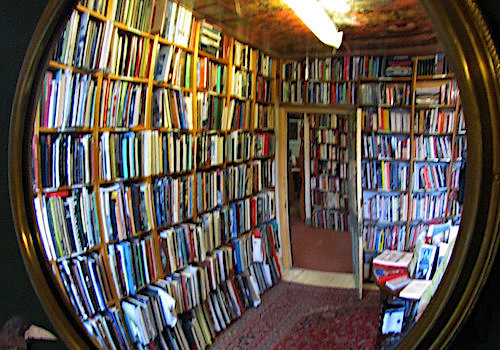How to Toe the Line Between ‘Trite’ and ‘Trendy’

Lots of authors struggle with balancing the stories they want to write with the trends of the present book market. Today, writer Paige Crawley shares some thoughts about writing the stories you want to write when you also want to make them marketable:
In 2015, my first stab at NaNoWriMo, I was determined to write a really trendy YA novel. I leaned into the conventions, perfected the sudden end-of-chapter reveals. I created a Threat (with a capital T), wrote a tragic backstory, and then created a character who was both a misunderstood outsider and the only person who could save the world. On December 1st, I felt pretty satisfied with the result. I’d written of friendship and tragedy and beating impossible odds. It fit the epochal fashion to a T (also capitalized). Nearly three years later, I look back and shudder.
The epitomic problem with writing is that it always takes too long, while the problem with trends is that they never last long enough. This is especially true in fiction, and even more so YA. Because it’s is the big seller these days, the fad currently sweeping the genre becomes the Thing. The Thing is hot and bestselling, so we assume it will become the new standard. And just like that, the newest trope is born and swaths of writers try to catch up, some succeeding while most cannot type fast enough.
Ironically, in the ‘real world’ trope and stereotype are universally negative, while in literature they are more ambiguous. A trope is a comforting omnipresence in your favorite genre. A stereotype reminds you that, yes, this book is insert-genre-here. Tropes ensure popularity and stereotypes help push copies. Even if your ultimate goal isn’t commercial success, deviating from the norm can feel incredibly risky because, oftentimes, the piece lacks a sort of genuineness. I’ve written countless stereotype-challenging pieces that simply failed to work, for reasons intangible and thus unfixable. Each time, I have questioned why I bothered—if that particular trope was ever bad in the first place. The answer I’ve come to is unfortunately rather blurry. While most tropes are harmless, many have resulted in such problems as under-representation and dreadfully boring novels. I recently read a heavily-lauded novel only to find I could predict the entire plot, which is no fun for anybody.
“The books that change genres, set new tones, and have embedded every trope considered standard issue are the ones that tell the most authentic, most developed stories.”So how do we navigate this predicament? How does one toe the line between trite and familiar? While I have so far failed to come up with a definitive answer, my advice fortunately does not rely on one. I recommend ignoring the mess altogether.
These days, especially in YA, the genre fads ebb and flow so swiftly that, in my opinion, they should barely matter. After all, writing usually takes too long to catch up. It’s like the stock market: if you only buy stock after it’s done well, you’ve missed the boat. To make any cash, you need to be willing to take some risk. Besides, there’s a new trend sweeping YA. As a well-read fan, I can promise that one type of book is up in sales: novels that have a good story to tell. If this seems self-explanatory, it should. The books that change genres, set new tones, and have embedded every trope considered standard issue are the ones that tell the most authentic, most developed stories.
To summarize, dealing with genre stereotypes, especially in the washy fields of juvenile fiction, is surprisingly easy. Ignore them. If you think up a wonderful sci-fi story, write it. If you find yourself writing about space wars and intergalactic resource conflicts, then great. There’s no use in writing against a trope solely to combat it. Likewise, if you feel like your science fiction reality doesn’t need holograms, leave them out. As readers, we like structure and familiarity, but I can promise that we’ll always like a good story better.

Paige Crawley is a student living in Toronto. Besides literature, her favorite things are coffee, chocolate, and knitting. Thanks to NaNoWriMo, she has drafted a number of novels and hopes to one day share them with the world. She is currently working on a blog about books and a podcast about language.
Top image licensed under Creative Commons from scrappy annie on Flickr.
Chris Baty's Blog
- Chris Baty's profile
- 63 followers



